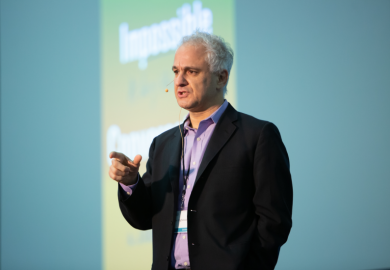The philosophy of mathematics occupies a curiously ambivalent position in the analytical tradition. On the one hand, it has been central in the development of that tradition. Its great founders - Frege, Russell and Wittgenstein - were all drawn into philosophy by puzzles about mathematics: what are the numbers? What is mathematical truth? etc. On the other hand, it has become within that tradition a rather narrow and esoteric specialism. Many analytical philosophers today think no more about mathematics than they do about say, geology. They read Frege's Sense and Reference, Russell's On Denoting and Wittgenstein's Tractatus, but the questions about mathematics that provided the original context and motivation for those works tend to get forgotten and left behind in favour of discussions of issues, in logic and the philosophy of language: naming, reference, representation etc.
As this splendid collection of essays shows, however, the subject is by no means moribund. There is much first-rate work going on in the area, it is just that it does not drive the rest of the discipline in the way that it used to. In part this is a reflection of the success of Frege and Russell in persuading us that questions in the philosophy of mathematics are, fundamentally, questions about the nature of logic. And yet, as the essays in this collection demonstrate, reflection upon specifically mathematical topics is still valuable, because, if for no other reason, a good test of a theory of logic and language is how well it is able to deal with the extraordinarily difficult questions in the philosophy of mathematics.
The structure of this collection is thoughtful and clever. It begins with Paul Benacerraf's classic paper on "Mathematical truth", which articulates brilliantly the central dilemma facing any potential philosopher of mathematics. On the one hand Benacerraf argues, we must grant the objectivity of mathematical truth, and this seems to compel us to accept, as the platonist does, the "external" existence of mathematical objects (numbers, triangles, etc). And yet, these objects have the peculiar property of being abstract: numbers are not in space or time and neither do they casually interact with other objects - no one has, for example, seen a number in the usual sense, for numbers, unlike physical objects, do not reflect light. And yet, on the other hand, accepting this abstract objectivity seems to present an insuperable problem as to how we know things about mathematical objects. There thus seems to be a tension between the notions of mathematical truth and mathematical knowledge, a tension reflected in the rival philosophies of Platonism and constructivism.
One way out of this dilemma is to insist that to know something in mathematics is not to know something about some peculiar type of object, but rather something about the meanings of words. Mathematics, on this account, is analytic: its propositions true by virtue only of the meanings of the words and symbols they employ. Thus the second essay on the collection is Quine's celebrated attack on the notion of analyticity, "Two dogmas of empiricism", which ends with the intriguing suggestion that we admit the existence of abstract objects like numbers, not in the spirit of traditional platonism, but rather in the spirit of an "ontologically relative" pragmatism. The existence of numbers, Quine says, is a myth, on a par with the existence of Homer's gods. But, in this respect, he goes on, it does not differ from our belief in the existence of physical objects. Epistemologically, numbers, physical objects and Homeric gods are on the same footing, "neither better nor worse except for differences in the degree to which they expedite our dealings with sense experience".
The essays that follow these two well-known papers present recent attempts to rise to the challenges they present. Charles Parsons in "Mathematical intuition" and Penelope Maddy in "Perception and mathematical intuition" attempt to persuade us that we can, after all, see (in some sense) the objects of mathematics, while Hartery Field, in "Is mathematical knowledge just logical knowledge?" argues that the postulation of abstract objects is not, contra Quine, necessary to "expedite our dealings with sense experience". We can, Field insists (though he admits it would be inconvenient) construct physical theories of the world that make no use at all of numbers or of any other specifically mathematical "objects". Meanwhile, Michael Dummett in "The philosophical basis of intuitionistic logic" argues that we cannot deal with these ontological questions at all until we have an adequate theory of meaning.
In thus structuring the book around the papers of Benacerraf and Quine, W. D. Hart has managed to give it a degree of coherence and continuity that is often lacking in collections of essays. This is, however, at the expense of excluding important views that do not fall neatly within his chosen structure. Where, for example, is there any discussion of Wittgenstein's radical approach to the philosophy of mathematics? Related to this is the perhaps excessive conservatism inherent in Hart's choices. Benacerraf's and Quine's papers are already widely available, and two of the other essays in this collection duplicate those that are included in the widely used Philosophy of Mathematics: Selected Readings, edited by Benacerraf and Hilary Putnam.
Nevertheless, it cannot be denied that Hart has done a great service to students of the subject by assembling some of the most significant contributions to the literature made in the past 20 years or so. Whether his volume will do anything to revitalise the subject, I do not know. Many people, students and professionals alike, will, I suspect, take one look at the degree of technical expertise required to master some of the papers (eg, Daniel Isaacson's "Arithmetical truth and hidden higher-order concepts") and flee in terror. But, for anyone prepared to overcome such fears, this collection steers a way through the challenging and fascinating philosophical issues raised by mathematics as well as any other I know.
Ray Monk is senior lecturer in philosophy, University of Southampton.
The Philosophy of Mathematics
Editor - W. D. Hart
ISBN - 0 19 875119 2 and 875120 6
Publisher - Oxford University Press
Price - £30.00 and £9.99
Pages - 316
Register to continue
Why register?
- Registration is free and only takes a moment
- Once registered, you can read 3 articles a month
- Sign up for our newsletter
Subscribe
Or subscribe for unlimited access to:
- Unlimited access to news, views, insights & reviews
- Digital editions
- Digital access to THE’s university and college rankings analysis
Already registered or a current subscriber? Login



